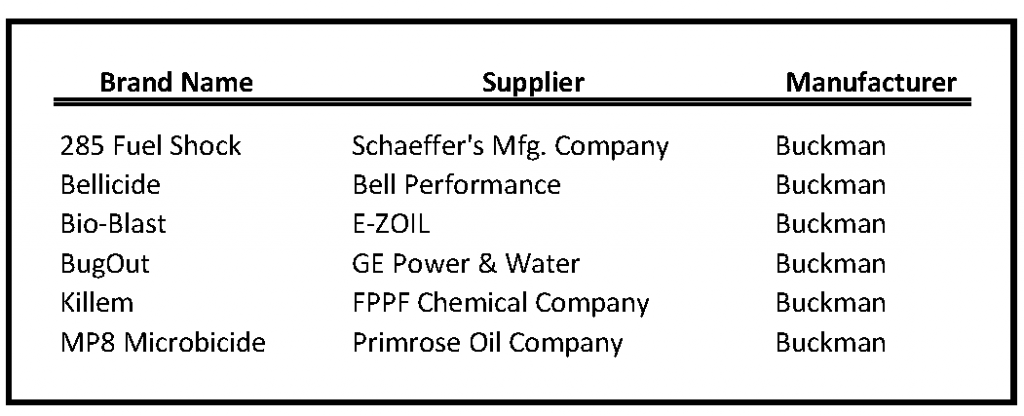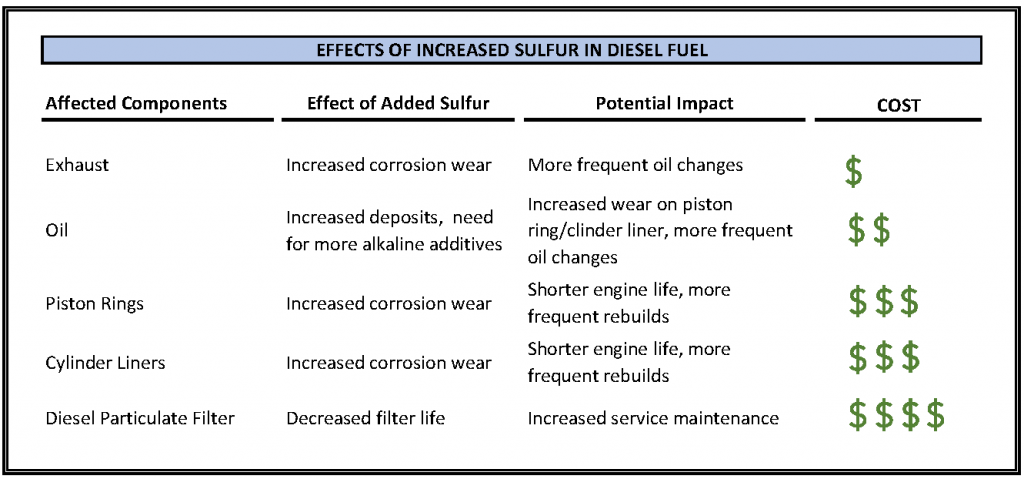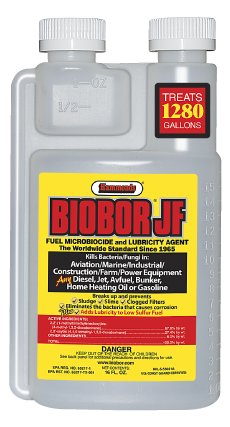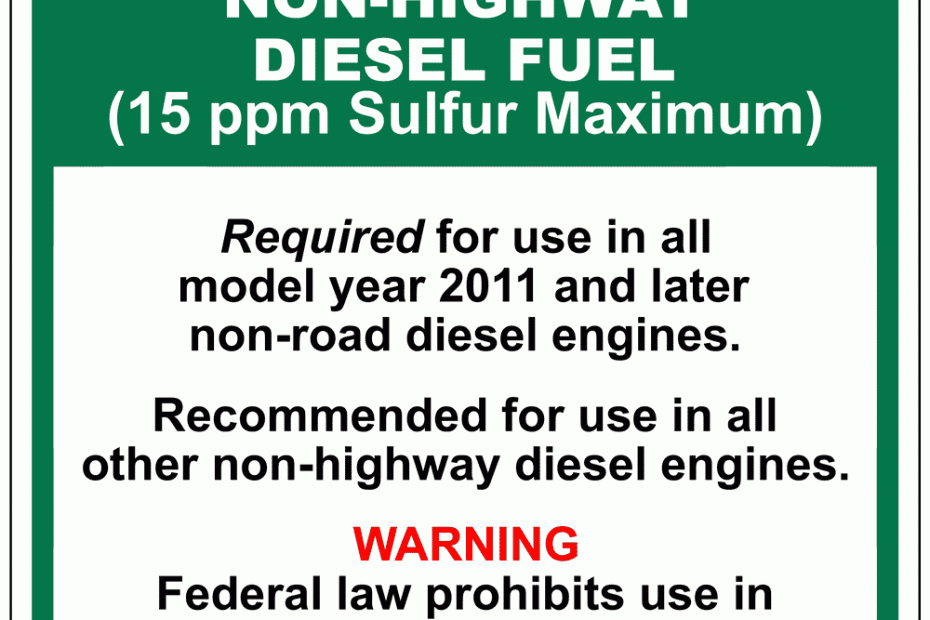In the last post we addressed three facts about sulfur in diesel fuel.
- Sulfur is not inherently toxic to microbes.
- Sulfur is harmful to humans and the environment.
- Sulfur damages engines.
The post concluded there are fuel biocides that contain high sulfur content. Some of the most egregious are those made with thiocyanates, containing 14,000 ppm of sulfur. At the manufacturers prescribed dose rate, the sulfur content of treated ultra low sulfur diesel fuel would be above the EPA allowable limits. These products are made by Bulab Holdings Inc., commonly referred to as Buckman. Buckman’s EPA label and SDS contain the statement, “This diesel fuel additive does not comply with federal ultra-low sulfur content requirements for use in model year 2007 and newer diesel motor vehicles or model year 2011 and newer diesel nonroad equipment engines.” Buckman’s branded M-5-1 biocide is sold and packaged under at least 186 different product names. Some of those listed do not carry the same high sulfur warning. The list below represents a few of the more common high sulfur additives sold under other brand names.

If you are using one of the above brands and are not aware of the high sulfur content, why should you be concerned?
Two Reasons to Abandon the Use of High Sulfur Fuel Additives
- Increasing the sulfur content in your fuel will increase maintenance costs and shorten the life of your equipment. The graph below shows some of the most common negative effects of increased sulfur in diesel fuel. A premature diesel particulate filter replacement can cost as much as $10,000. Increasing the sulfur will contribute to the problem. Studies show that long term use of a high sulfur product will increase the cost of vehicle operation by as much as 2 cents per gallon. Over the life of an engine, the additional cost can amount to thousands of dollars. One of the most significant reasons to abandon using high sulfur additives is the corrosive wear caused by sulfur in fuel. Corrosion is a serious problem amounting to shorter engine life. Sulfur increases corrosion wear and contributes to increased deposits.
- Increased sulfur content in your fuel can result in state and federal fines if caught. Many government agencies impose fines when the sulfur content of diesel fuel is found to be above the regulated limit. In the United States ULSD is regulated to be no higher than 15 ppm. Using an additive with 14,000 ppm sulfur will impart enough sulfur to violate the regulation. If caught, the penalties can be substantial. Non-compliance penalties for using or selling out of spec diesel fuel can be as much as $37,500 per occurrence.


Don’t settle for anything less than the best, Biobor JF!
Ask yourself, “Is it worth it?” Finding quality fuel biocides and additives is a major part of fuel quality management. Sulfur content is a serious consideration when choosing a product to use. You may solve 1 problem, only to create 100 more. Be your own advocate and learn more about the products you are using. Hammonds Fuel Additives is the manufacturer of Biobor JF, the oldest and most well-known fuel biocide in the world. There is no sulfur content in Biobor JF. It complies with all fuel standards and does not negatively affect the fuel composition or specification. That is why it is the only available, approved fuel biocide used in aviation today. The same Biobor JF is used to protect diesel fuel and gasoline across the globe. Biobor JF is the only fuel biocide that increases diesel fuel lubricity. Just one more reason to use it. Abandon the use of high sulfur additives and biocides. It will save you money and give you piece of mind.
Share the Post








